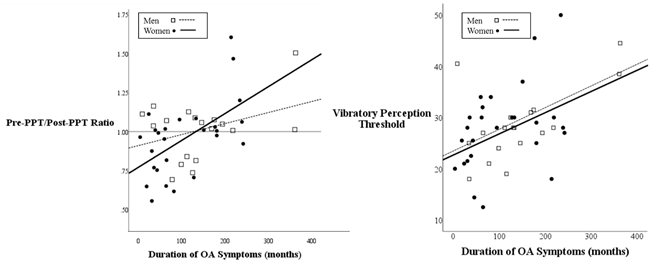Session Information
Session Type: ACR Poster Session B
Session Time: 9:00AM-11:00AM

Disclosure: K. C. Foucher, None; S. Chmell, None; C. Courtney, None.
To cite this abstract in AMA style:
Foucher KC, Chmell S, Courtney C. Knee Osteoarthritis Symptom Duration Is Associated with Conditioned Pain Modulation and Vibration Perception Threshold Impairment [abstract]. Arthritis Rheumatol. 2018; 70 (suppl 9). https://acrabstracts.org/abstract/knee-osteoarthritis-symptom-duration-is-associated-with-conditioned-pain-modulation-and-vibration-perception-threshold-impairment/. Accessed .« Back to 2018 ACR/ARHP Annual Meeting
ACR Meeting Abstracts - https://acrabstracts.org/abstract/knee-osteoarthritis-symptom-duration-is-associated-with-conditioned-pain-modulation-and-vibration-perception-threshold-impairment/
